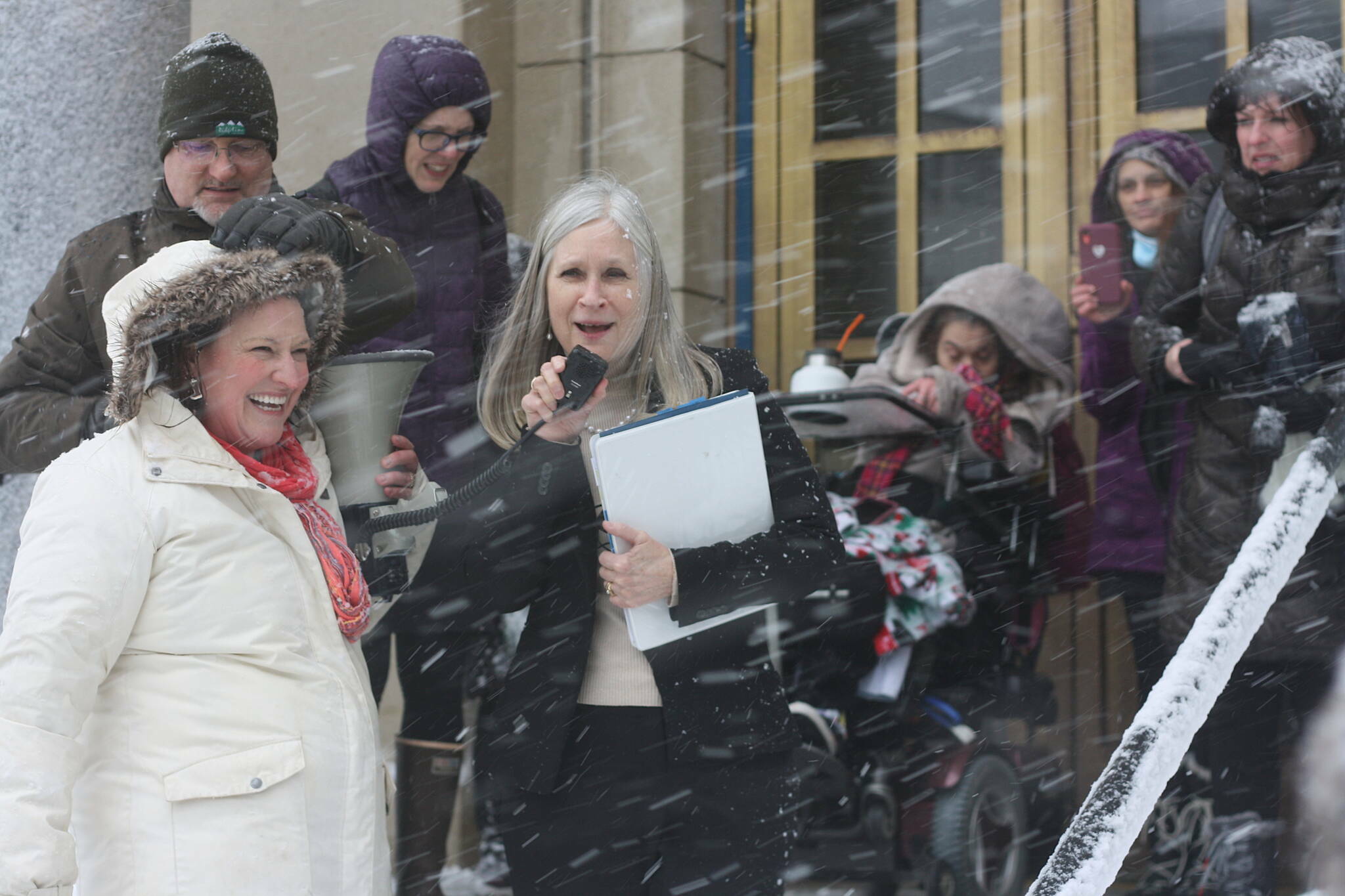The first batch of 48 prefiled bills for the coming legislative session includes two by Juneau state Rep. Andi Story that would provide extra education funding to young students struggling to read and allow people at least 16 years old to preregister to vote.
Bills by other legislators including limiting the state’s ability to help another state enforce its abortion laws, extending a monthly benefits program to low-income seniors, modifying oil/gas and Permanent Fund dividend regulations (linking both of them in a single bill, in one instance), and establishing “Alaska Veterans’ Poppy Day” on the Friday before Memorial Day.
Another set of prefiled bills is scheduled to be released Friday. The session is scheduled to gavel in Tuesday, Jan. 16.
The bill allowing voter preregistration is similar to laws in 25 other states and the District of Columbia, with 16 states and D.C. allowing preregistration at age 16, four at age 17 and five at a different age, according to the National Council of State Legislatures. People still need to be 18 in order to vote.
Story, in an interview Monday, said she’s introducing House Bill 246 because efforts elsewhere have been bipartisan and it gets youths engaging in political issues earlier.
“I think it’s a great idea and I think it’s important to get our young citizens involved,” she said. “To me it’s encouraging active citizenship, it’s encouraging active democracy.”
The second prefiled bill by Story, HB247, requires the state to provide school districts $1,000 for each student in grades K-3 “determined to have a reading deficiency based on the statewide screening or assessment tool.” The funds would be used “to provide the support, intervention, and services the student needs for the student’s reading improvement plan, including teacher and paraprofessional career development.”
Districts began implementing the Alaska Reads Act this year, the goal of which is to have every student reading at grade level or above by the end of the third grade. However, teachers and other school district officials have expressed concerns about extra training requirements — and associated costs — which has resulted in policies such as the Juneau Board of Education voting to end elementary school classes 30 minutes early on Mondays to allow for teacher training and other non-classroom activities.
Story said the provisions of HB247 were part of another education bill she introduced that has stalled because it is undergoing legal analysis, so the funding in the new bill “sort of got lost in that and it needs its own emphasis.”
Other prefiled bills include:
Prohibiting the state from providing medical records, witnesses and other information related to subpoenas or other enforcement actions involving abortion laws in other states (HB 241 by Rep. Andy Josephson, an Anchorage Democrat). Officials in some states, with Texas among the most notable, have declared they will seek to enforce provisions of their laws against people who travel out of state for abortions and/or anyone who assists them. Alaska’s Supreme Court has ruled the privacy clause of the Alaska Constitution guarantees the right to an abortion.
Repealing the eight-year limit on out-of-state school experience that may be substituted for in-state experience in teacher salary scales (HB 230 by Rep. Rebecca Himschoot, a Sitka independent). Himschoot, a former teacher, has expressed concerns some state policies and restrictions are contributing to both an existing teacher shortage and an outflow of educators to other states.
Three bills extending the Alaska Senior Benefits Program, which provides monthly payments up to $250 to seniors 65 and older with “low to moderate income,” as defined by the state. The program is set to expire on June 30. Bills by Rep. Sarah Vance, a Homer Republican, and Sen. Shelley Hughes, a Palmer Republican, are seeking to extend the program to 2034, while a bill by Scott Kawasaki, a Fairbanks Democrat, would extend it to 2032.
Two bills establishing Alaska Veterans’ Poppy Day “to thank past and current members of the armed forces and honor the individuals who died to preserve freedom” (HB229 by Rep. Will Stapp, a Fairbanks Republican, and SB 159 by Sen. Forrest Dunbar, an Anchorage Democrat.
Prohibiting the state from representing senior executive branch officials in ethics complaints (SB 165 by Sen. Matt Claman, an Anchorage Democrat). The bill comes after the Alaska Department of Law implemented new rules in November allowing the state to represent the governor, lieutenant governor or attorney general in ethics violations complaints.
Limiting PFDs to $1,000 and setting aside Permanent Fund earnings to pay for up to 25% state ownership in a gas pipeline. Once the state ownership threshold is met, future dividends would be calculated by a so-called “50-50 formula” that essentially splits Permanent Fund earnings available after inflation-proofing between dividends and state spending (HB 222 by Jesse Sumner, a Wasilla Republican).
• Contact Mark Sabbatini at mark.sabbatini@juneauempire.com or (907) 957-2306.

